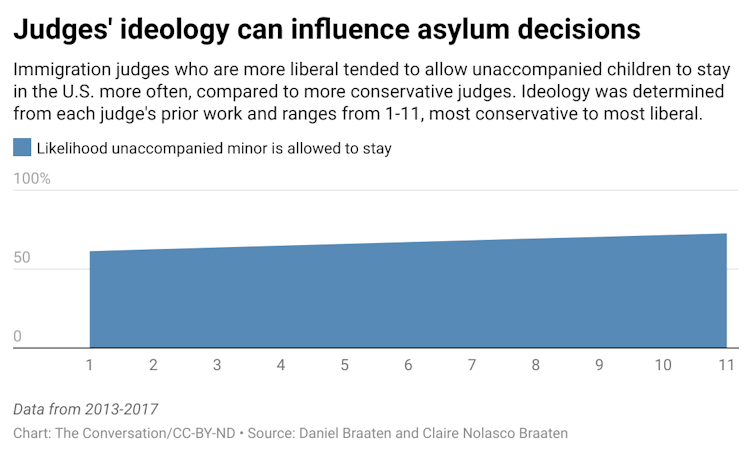|
Most of us can’t afford to own beachfront property, but in principle we all have the right to walk along some portion of the beach in virtually every U.S. state with a coast. As University of Florida law professor Thomas Ankersen explains, property owners’ control typically stops at the high tide line.
In practice, though, owners often want to keep the public off their property, and this can lead to legal battles. Or they may install sea walls to reduce erosion, blocking public access in the process. As rising seas eat away at beaches, it’s small wonder that the water’s edge has become a hotly contested space.
Also today: Flaws in monitoring international bioweapons research The Israeli right’s productive relationship with American evangelicals The discovery that put the hunt for exoplanets into high gear
|

If you want to stroll the shoreline, know your rights.
Normanack/Flickr
Thomas Ankersen, University of Florida
In principle, some portion of the shoreline is public land along virtually all US coasts. But these can sometimes overlap with private property interests, creating confusion and conflict.
|
Economy + Business
|
-
Naomi Cahn, University of Virginia
The case of Britney Spears, who is trying to end her father's conservatorship, illustrates why the legal arrangement is rife for abuse.
|
|
Arts + Culture
|
-
Jennifer Wollock, Texas A&M University
Chaucer’s career as a secret agent helped him assume different disguises in his writing. Some scholars interpret this role-playing as Chaucer being sexist and anti-Semitic.
|
|
Health
|
-
Justin Vesser, University of Virginia
Ongoing tracking is meant to spot very rare risks – like the connection between the Johnson & Johnson shot and Guillain-Barré syndrome. And it relies on public reporting.
|
|
Ethics + Religion
|
-
Walker Robins, Merrimack College
The political alliance between American evangelicals and Israel's right wing may have peaked during the Trump administration.
|
|
Environment + Energy
|
-
Jeff Da Costa, University of Reading
Catastrophic floods in north-western Europe have shown how badly early warning systems can fail.
-
Garth Heutel, Georgia State University; Givi Melkadze, Georgia State University; Stefano Carattini, Georgia State University
It isn't just the effects of climate change that could destabilize the financial system, it's also fossil fuel assets losing value. The good news is that central banks can fix it.
|
|
Politics + Society
|
-
Gary Samore, Brandeis University
The sketchy history of international efforts to control bioweapons suggests that nations will resist cooperative monitoring of gene hacking for medical research.
|
|
Science + Technology
|
-
Jean-Luc Margot, University of California, Los Angeles
Billions of galaxies are in the universe, with billions of stars in every galaxy. Could billions of planets be out there too?
|
|
Trending on site
|
-
Terry Shoemaker, Arizona State University
Disaffected young evangelicals and those who left the church describe an out-of-touch institution not in line with their political beliefs, a scholar found
-
Claire L. Adida, University of California San Diego; Adeline Lo, University of Wisconsin-Madison; Lauren Prather, University of California San Diego; Melina Platas, New York University Abu Dhabi; Scott Williamson, New York University Abu Dhabi
Research suggests that reminding Americans – Democrats and Republicans – of their family history creates empathy for immigrants and more favorable views toward immigration.
-
Michael J. Poulin, University at Buffalo
It's easy to assume that the practice has few, if any, downsides. But a new study explored some of its social repercussions.
Today’s graphic

|
|